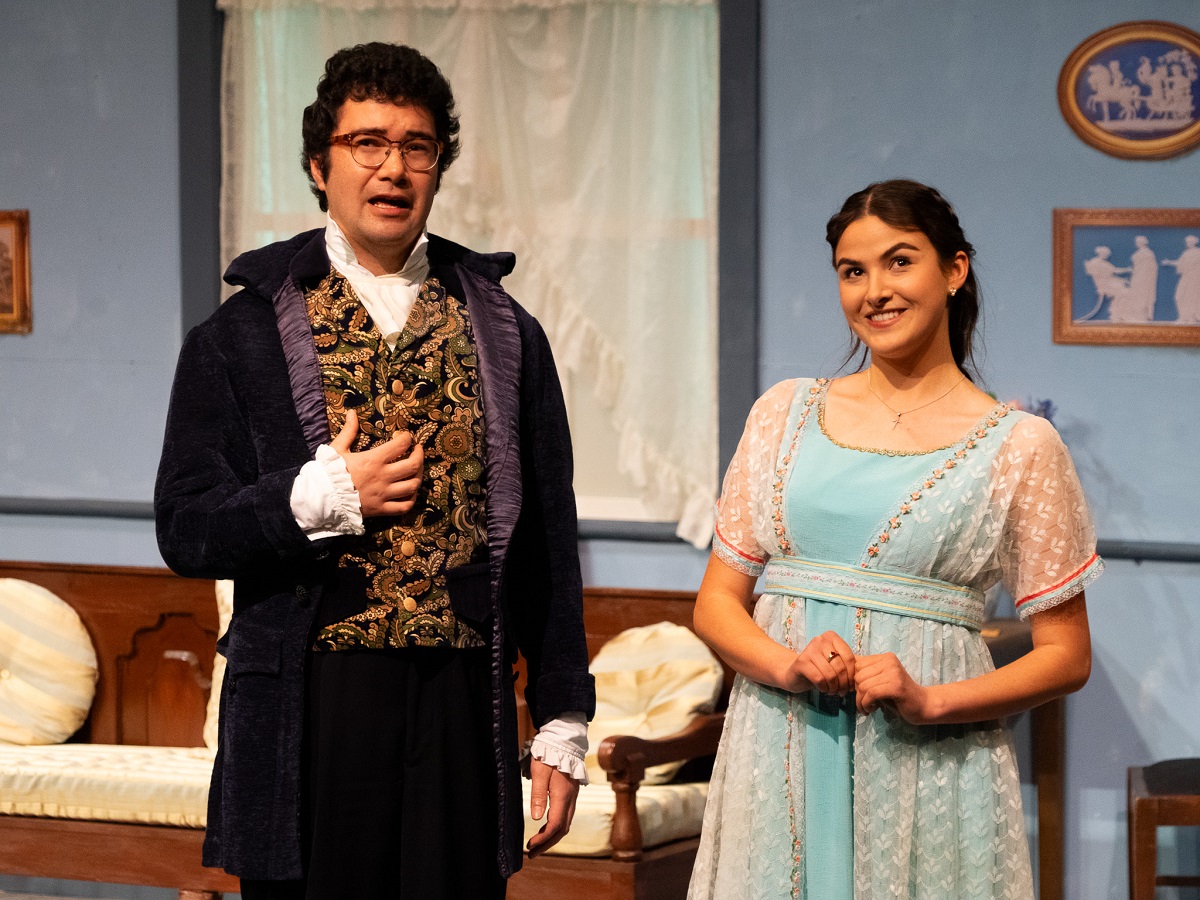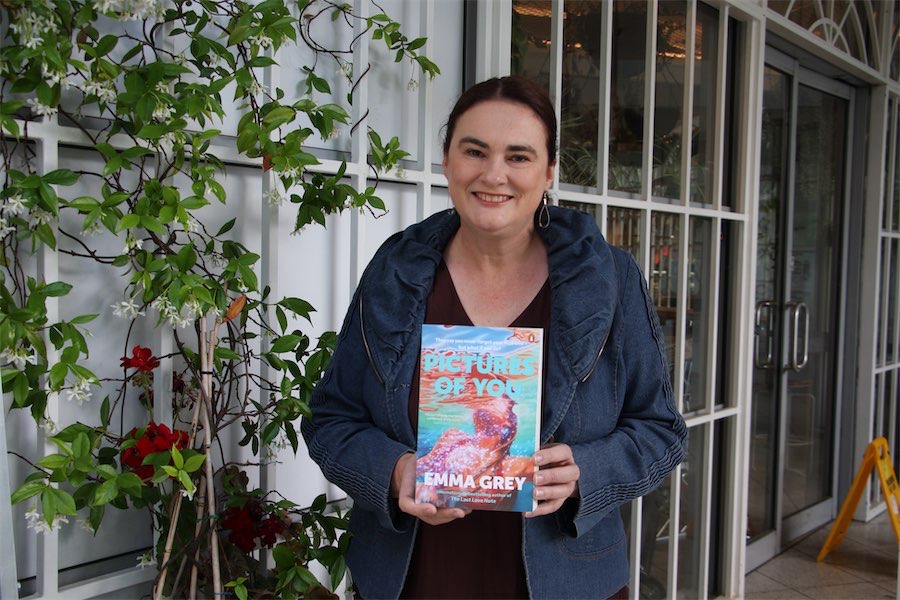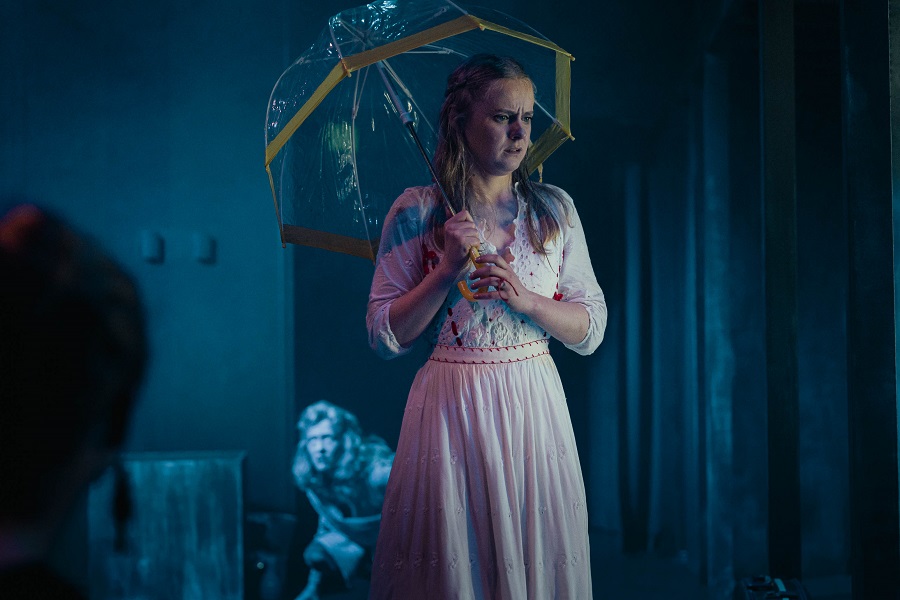
Theatre / “Mr Bennet’s Bride”, by Emma Wood. At Canberra Rep Theatre, until September 23. Reviewed by SIMONE PENKETHMAN.
FIRST published more than 200 years ago, Jane Austen’s comic, romance novel, “Pride and Prejudice” demonstrates its relevance and appeal by being an ongoing inspiration for plays, podcasts, novels and films.
We already know the story of Mr and Mrs Bennet’s unhappy marriage. Their greatest failure of all being to produce five daughters and no son.
But Austen gave us scant detail of Mr and Mrs Bennet’s courtship or of their childhood and young-adult circumstances. The novel doesn’t even give them first names.
In this prequel, Australian writer Emma Wood imagines a young Mr James Bennet (Sean Sadimoen) as a lonely, only child; a half-orphan with a distant and disapproving father. Bookish and misanthropic, Bennet’s disinterest in marriage, succession and the management of the Longbourn Estate is the bane of his father’s (Robert de Fries) existence.
Rebelling against his father’s sensible marriage suggestions, Bennet, falls for the beautiful but vacuous and social-climbing Emily Gardiner (Stephanie Waldron), daughter of his father’s lawyer,
Set in the late 18th century, 25 years before the publication of “Pride and Prejudice”, this show is a beautifully produced drawing room comedy. Costume designer Anna Senior, set designer Andrew Kay and the production team create a feast for the senses that always supports and never competes with the narrative.
There are strong performances in this sharp but compassionate addition to the “Pride and Prejudice” canon. Sadimoen and Waldron both show great comic spark as the self-interested young lovers.
De Fries perfectly portrays the universal frustrations and self-recriminations of parenting. His brief scenes with his opportunistic lawyer, Mr Gardiner, (Iain Murray) are wry, funny and true to life.
Longbourn servant Mrs Graves (Sally Rynveld) and the widowed sister of old Mr Bennet, Mary Ellingworth (Liz St Clair Long), both have some golden moments of physical comedy. These characters also remind us of the precarity of women’s security under the strict, patriarchal traditions of British estate inheritance.
Act one is more wordy and slow moving, while act two is faster-paced, quicker-witted and has deeper character development.
The closing scene is a beautifully executed series of tableaus and a very satisfying conclusion.
Who can be trusted?
In a world of spin and confusion, there’s never been a more important time to support independent journalism in Canberra.
If you trust our work online and want to enforce the power of independent voices, I invite you to make a small contribution.
Every dollar of support is invested back into our journalism to help keep citynews.com.au strong and free.
Thank you,
Ian Meikle, editor




Leave a Reply